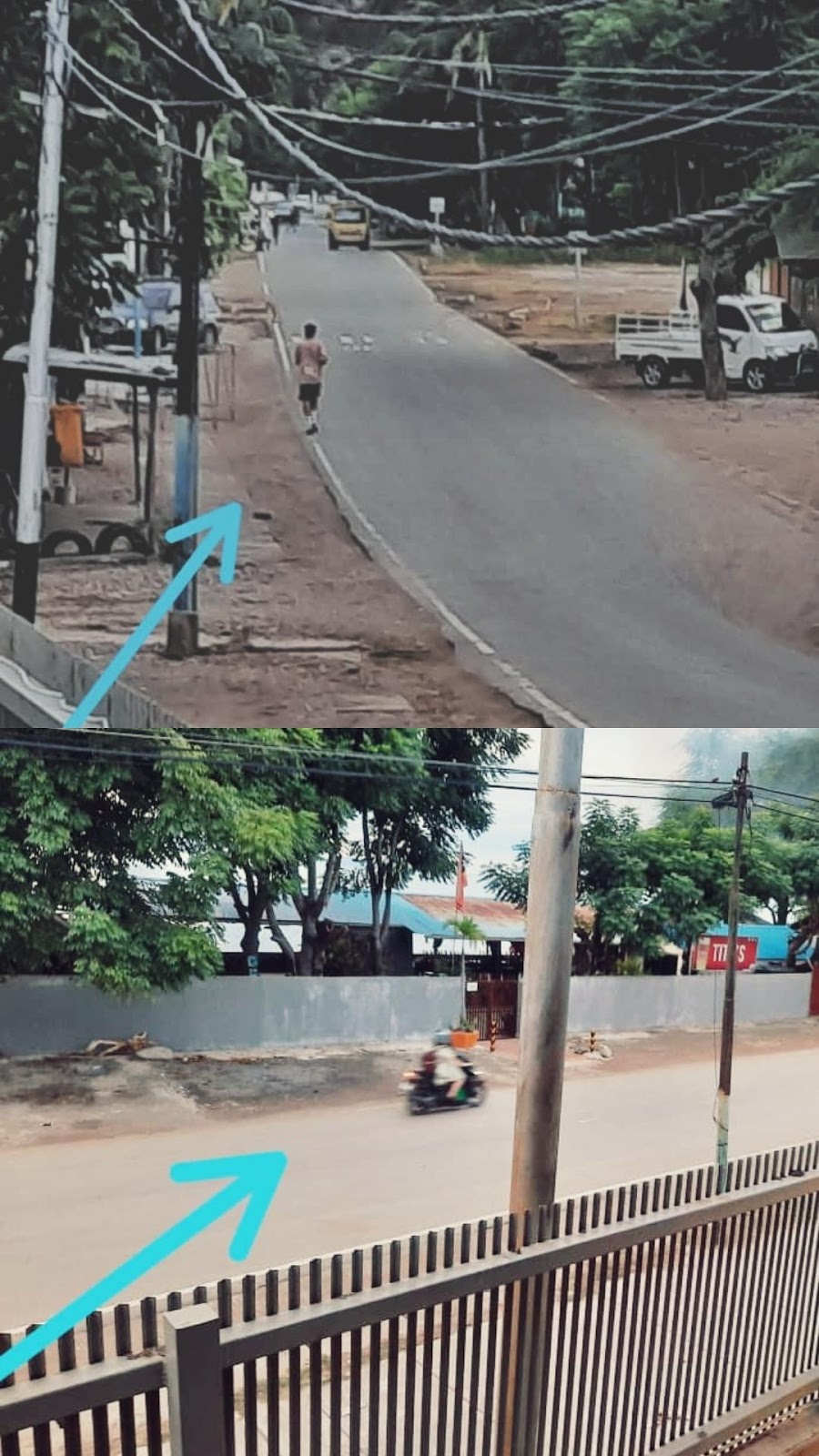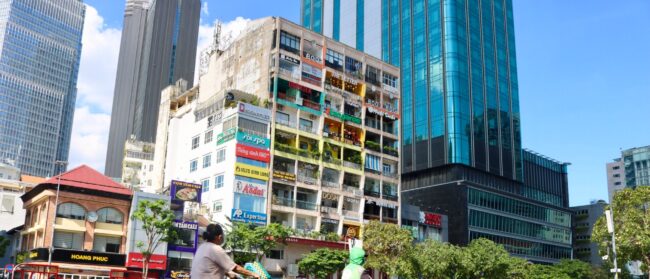Benoi Gusmao’s friends realised she had a keen detective sense – or just a lot of time on her hands – as she was stuck in her family’s hotel, the Novo Horizonte, this past May.
After the hotel in the Timor-Leste capital of Dili became an isolation centre for Covid-19 patients, she would sit in the security outpost and scan for passersby. If she saw her friends, she would send a hazy “spotted!” photo to their WhatsApp group.
It was the closest she could get to a real interaction. Despite not being in direct contact with any patients, Benoi stayed at Novo Horizonte most of the time.
“People are scared of meeting me,” she sighed, adding that she is keen for it all to be over and to go back to her normal life.
Despite her frustrations, Benoi is one of the lucky ones in Timor-Leste’s Covid-hit hospitality sector. The pandemic, and the subsequent need for quarantine centres, has come through as an unexpected panacea for a select few of Dili’s hotels, like the Novo Horizonte, that have been languishing for years. For others not acting as quarantine centres, it has only worsened an already bad situation.

When the first few cases were suspected in Timor-Leste in March 2020, the government decided to quarantine people in Tibar, a town just outside Dili. As protests broke out in the small community about the danger brought to them, the government realised that it needed to expand its quarantine facilities.
Soon after, the owners of Novo Horizonte received a call from the Ministry of Health asking them to become a quarantine facility. In the beginning there was apprehension because of the dangers of the virus, but the hotel owners decided that some footfall was better than none.
Along with the Audian Hotel, the Novo Horizonte became among the first hotels in Dili to be commissioned by the government as a quarantine facility. As its 19 rooms started to fill up with quarantine guests and revenue rolled in, the Novo Horizonte owners could afford a breather – albeit with masks on.
Timor-Leste’s hospitality downturn was one that set in long before Covid-19.
Novo Horizonte is one of the many hotels that dot the shoreline of Dili. Benoi’s family bought the hotel in 2008 and it became one of the several that enjoyed a large clientele during the UN years. After Timor-Leste’s independence vote in 1999, the UN maintained a presence in the country through various peacekeeping missions until it finally left in 2012. This exit took along with it wealthy expats who could afford to spend at beachside hotels and restaurants.
The hit from this departure was only compounded in 2018, when flight prices skyrocketed as Garuda Indonesia bought Sriwijaya Air, effectively establishing a monopoly on all flights between Indonesia and Timor-Leste. People who could pop by Bali for a weekend with a ticket for under $200 return started looking at a $600 average.
But the flight issues that started in 2018 did not affect all establishments uniformly. Top tier hotels, which are regularly booked by INGOs for visiting consultants, still retained that market until the pandemic hit.
“Beachside Hotel has been a favourite of NGO partners so the flight pricing issue did not affect us as much as the departure of the UN in late 2012,” said the hotel’s manager Melanie Horne.
But it was the three-star and under hotels, like the Novo Horizonte, focusing on more budget-conscious travellers from Bali, that suffered more.
“After the UN left [in 2012], many hotels started living off international events like bike races that brought tourists to Dili and depended on them for a source of revenue,” Benoi said. But as flights became expensive in 2018, tourists dwindled.
Timor-Leste has found itself in a space where backpackers cannot afford to travel to it, and clients with more money will expect a more luxurious experience for the high dollar price
Compared to neighbouring Bali, Timor-Leste is far more expensive and offers fewer amenities with its dollar-denominated economy. Lack of competition and government intervention to improve tourism means that hotels charge a lot – the average price of a three-star hotel is $51 per night and a four-star is $108, according to Planet of Hotels.
In recent years, Timor-Leste has found itself in a space where backpackers cannot afford to travel to it, and clients with more money will expect a more luxurious experience for the high dollar price, which it cannot provide.
It was in this business environment that the country entered the ill-fated year of 2020. There was no indication that tourism would improve, but no one had suspected the already suffering industry would take a further nosedive with the arrival of Covid-19.
While a few select hotels like Novo Horizonte and Audian have been able to benefit from the first round of quarantine, for others, the pandemic meant another plunge in revenue.
Many expats were evacuated by their parent organisations in March 2020, a big chunk of the clientele of many restaurants and hotels. At this time there were no in-country testing facilities and all suspected Covid-19 samples had to be sent to Australia.
Timor-Leste had limited contact tracing systems, less than 10 ventilators for the country and few-to-no doctors and nurses who could actually operate them. It was no surprise when the country installed a state of emergency and closed its airspace to commercial travel until it could figure out an action plan.
For hotels, domestic tourism was not a viable option. In one of the world’s poorest countries, domestic consumption and tourism was at an all time low after years of economic contraction.
Hope for the hotel industry came in the form of gradual easing of flight restrictions in April 2020, as the government decided to restart a few flights from Australia and then some humanitarian passenger flights from Kuala Lumpur that June.
In mid-2020, more hotels were allowed to offer quarantine for incoming international travellers, after getting approval from the government. Some jumped at the chance – Hotel Timor, an old Portuguese hotel with some of the better cheese toasties in the city, made a quarantine package promotional video to get incoming passengers to stay with them.
But not every hotel could profit off the new-found quarantine facility status, and even those who did still struggled to stay afloat.
In August last year, the government came up with an economic plan that would focus on improving tourism within a three-year period. It quoted the Association of Hotel Owners, which estimated that the country’s tourism and hospitality industry lost 95% of its sales revenue since the beginning of 2020.
Some initiatives it said it would focus on were the creation of a state-owned company dedicated to tourism policy, public investment in tourism infrastructure, and agreements with airlines to get controlled pricing on flight tickets. However, little to no headway has been made on any of these initiatives.
By September 2020, more expats started trickling in through humanitarian and Australian flights. At the time, dining-in at restaurants was allowed, and while customers were few, they helped pay some bills.
Beachside Hotel, located at the edge of town along the coast, had 21 staff that they attempted to keep on the roster. They didn’t have the revenue that acting as a quarantine facility offered, but luckily they had two to three long term residents that helped them stay afloat.
Some hotel and restaurant staff received wage subsidies and food baskets from the government in 2020. This alleviated the burden on hotel owners, but Beachside owner Horne says it wasn’t enough.
“We received a tax break in October 2020 and then in January 2021 for $3,000,” she said. “But considering the substantial losses we have sustained in the last 16 months, this was minimal.”
As 2021 rolled in, the hotels of Dili witnessed yet another evolution in the pandemic situation, forcing them to adapt once more.
By March this year, Timor-Leste was one of the only countries in the world to have fewer than 100 cases. But that soon changed as the virus entered through its porous land borders with Indonesia, the country with the highest infection rate in Southeast Asia. This time around the government instituted a stricter lockdown with no dining in and restrictions on inter-district travel. On May 26, Timor-Leste saw its single largest daily new case count with 429. As of mid-July, there are almost 10,000 Covid-19 cases in the country.
As a result, the Novo Horizonte and other hotels once again saw a change in their role. From a quarantine facility for incoming air passengers, the government has transformed the hotel and others like it into an isolation centre for asymptomatic Covid-19 cases. Serious cases are referred to Covid-19 health facilities in Vera Cruz and Lahane.
As the pandemic hit the country harder, hotels like Beachside, that did not offer quarantine to begin with, had to get creative to keep afloat.
“We adapted our Wednesday dinner specials and started delivery to various expat compounds like Palm Springs Estate, where a large number of our regulars reside,” Horne said.
Timor-Leste has been receiving vaccines through the COVAX facility, as well as through aid from the Australian government, with roughly 11% of the population estimated to have been vaccinated. While the country remains in a state of emergency until the end of July, people are allowed to return to restaurants.
This offers some respite for the residents of Dili, but the hotels and restaurants are less relieved. While expats have been returning, it is nowhere near the levels of the pre-March 2020 exodus. Though there are rumours of new flights being established every few weeks, there remain only a handful of operational routes in and out of the country.
No tourists can be seen on the immediate horizon, and the hotel industry as a whole continues to experience great losses. As long as institutional quarantine for incoming travellers and isolation for Covid-19 patients remains a business, some hotels like the Novo Horizonte will be able to hang on.
For others, it is getting difficult to stay in business.
“It is unlikely we will see international student groups in the foreseeable future due to the high risk,” said Horne. “The long term effects of Covid-19 on travel will continue to impact our hotel.”


